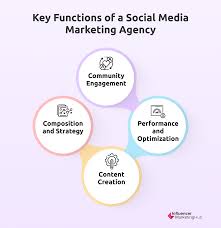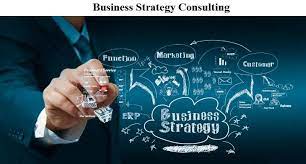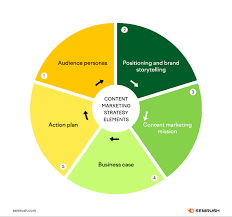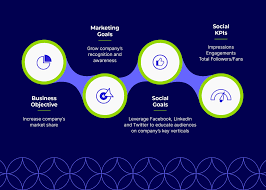Unlocking Success: The Role of a Social Media Content Creation Agency in Building Brands
The Importance of a Social Media Content Creation Agency
In today’s digital age, social media has become a powerful tool for businesses to connect with their audience, build brand awareness, and drive engagement. However, creating high-quality and engaging content consistently can be a challenging task for many businesses. This is where a social media content creation agency can play a vital role.
A social media content creation agency specialises in developing compelling content tailored to different social media platforms. From eye-catching visuals to captivating copywriting, these agencies have the expertise to create content that resonates with the target audience and aligns with the brand’s messaging.
One of the key benefits of working with a social media content creation agency is their ability to stay up-to-date with the latest trends and best practices in social media marketing. They understand the nuances of each platform and know how to optimise content for maximum reach and engagement.
Moreover, a social media content creation agency can help businesses save time and resources by taking care of the entire content creation process. From brainstorming ideas to scheduling posts, these agencies handle all aspects of social media content production, allowing businesses to focus on other core activities.
Another advantage of partnering with a social media content creation agency is their ability to track performance and analyse data effectively. By monitoring key metrics such as engagement rates, click-through rates, and conversion rates, these agencies can provide valuable insights that help businesses refine their social media strategy for better results.
In conclusion, a social media content creation agency can be a valuable asset for businesses looking to enhance their online presence and drive meaningful interactions with their audience. By leveraging the expertise of these agencies, businesses can create impactful content that boosts brand visibility, fosters customer loyalty, and ultimately drives business growth in the competitive digital landscape.
Exploring the Role and Benefits of Social Media Content Creation Agencies: Key Questions Answered
- 1. What services does a social media content creation agency offer?
- 2. How can a social media content creation agency help my business stand out on social platforms?
- 3. What is the typical process involved in working with a social media content creation agency?
- 4. How do social media content creation agencies ensure that the content created aligns with my brand’s voice and values?
- 5. What are the key metrics that a social media content creation agency tracks to measure the success of their campaigns?
- 6. How can I collaborate effectively with a social media content creation agency to achieve my business goals?
1. What services does a social media content creation agency offer?
A social media content creation agency offers a range of services tailored to help businesses enhance their online presence and engage with their target audience effectively. These services typically include strategic content planning, creative content creation such as graphics, videos, and copywriting, social media platform management, community engagement, influencer partnerships, analytics and performance tracking, and overall social media strategy development. By leveraging the expertise of a social media content creation agency, businesses can benefit from high-quality content that resonates with their audience and drives meaningful interactions to achieve their marketing objectives.
2. How can a social media content creation agency help my business stand out on social platforms?
A social media content creation agency can help your business stand out on social platforms by crafting unique and engaging content that resonates with your target audience. These agencies have the expertise to develop creative strategies, eye-catching visuals, and compelling copywriting that differentiate your brand from competitors and capture the attention of users scrolling through their feeds. By understanding the latest trends and best practices in social media marketing, a content creation agency can tailor content specifically for each platform, ensuring maximum impact and engagement. With their knowledge of audience preferences and behaviour, these agencies can help your business create a strong online presence that sets you apart and drives meaningful interactions with potential customers.
3. What is the typical process involved in working with a social media content creation agency?
When working with a social media content creation agency, the typical process involves several key steps. Firstly, there is an initial consultation where the agency gets to understand the client’s brand, target audience, goals, and messaging. Following this, the agency will develop a content strategy tailored to the client’s objectives and the requirements of various social media platforms. The next phase usually includes brainstorming creative ideas, creating engaging content such as visuals and copywriting, and scheduling posts for optimal timing. Throughout the collaboration, there is continuous communication between the agency and the client to ensure that the content aligns with the brand’s voice and resonates with the target audience. Regular performance analysis and reporting are also part of the process to track results and make necessary adjustments for ongoing improvement.
4. How do social media content creation agencies ensure that the content created aligns with my brand’s voice and values?
Social media content creation agencies ensure that the content they produce aligns with a brand’s voice and values through a thorough understanding of the brand’s identity and messaging. They start by conducting in-depth research into the brand’s history, target audience, industry positioning, and overall tone of communication. By collaborating closely with the brand to establish clear guidelines and preferences, these agencies can tailor their content creation process to reflect the brand’s unique personality and values effectively. Regular communication, feedback loops, and quality checks are also key strategies used by social media content creation agencies to ensure that every piece of content resonates authentically with the brand’s voice and upholds its core values across all social media platforms.
5. What are the key metrics that a social media content creation agency tracks to measure the success of their campaigns?
One of the frequently asked questions about social media content creation agencies is, “What are the key metrics that a social media content creation agency tracks to measure the success of their campaigns?” Social media content creation agencies typically track a range of metrics to evaluate the effectiveness of their campaigns. These may include engagement metrics such as likes, comments, shares, and click-through rates, as well as reach and impressions to gauge the extent of audience exposure. Conversion metrics like leads generated, website traffic, and sales attributed to social media efforts are also crucial in determining campaign success. By analysing these key metrics, social media content creation agencies can assess performance, identify areas for improvement, and refine strategies to achieve optimal results for their clients.
6. How can I collaborate effectively with a social media content creation agency to achieve my business goals?
Collaborating effectively with a social media content creation agency is crucial to achieving your business goals. Communication is key – clearly define your objectives, target audience, brand voice, and expectations to ensure alignment with the agency’s strategy. Provide timely feedback on content drafts and be open to suggestions and creative ideas from the agency. Establish regular check-ins and performance reviews to track progress towards your goals and make necessary adjustments. By fostering a collaborative relationship built on trust, transparency, and open communication, you can maximise the impact of the agency’s expertise and creativity in driving your business success through social media.











